Marine Learning Systems
Marine Learning Systems News
Training Tips for Ships: Are Mariners Knowledge Workers?

What is the difference between knowledge and skills? Which should we focus more on in our training, and how does one influence the other?When we think about the most important mariner quality, often the first thing that comes to mind is skill. Can the officer or crewmember safely perform the skills required of him or her? After all, if everyone performs their necessary skills correctly, what more is there?There is, in fact, much more. Let’s see what the experts have to say:“A study by the U.S.
Maritime Training Insights – MarTID 2021 Report Available

As trainers in the maritime industry, we benefit from the sharing of information. Understanding what training trends are emerging, how training budgets are growing (or shrinking), what training models are on the rise or decline, and how the world pandemic has affected training operations is all of great important to us. Having a global understanding of these questions and more allows us to improve based on best practice…
Algoma Implements Marine Learning Systems Training Solution
Canadian shipping company Algoma Central Corporation has implemented Marine Learning Systems’ training platform to support employee development and Algoma’s Environmental Compliance Plan.
Training Tips for Ships - Tip #27: Maritime Training and the Pandemic. What Now?

The endless debate pitting face-to-face learning against online learning rages on and will likely continue to do so for some time. As we entered the pandemic there was a huge and hasty shift in maritime training practices (and in the world as a whole) to online learning. This was both positive and negative. It was positive because we can all be thankful that there was a safe and available alternative to face-to-face training.
Training Tips for Ships - Tip #24: For your Disaster Recovery Plan, Hope for the Best; Plan for the Worst

Very few people live day-to-day expecting a disaster. However, disasters do happen and a critical component of business continuity is ensuring that when disaster strikes, our critical systems are returned to normal operations as quickly and efficiently as possible. Last month’s training tips for ships discussed a catastrophic fire that occurred in France last month at one of the world’s largest data centres.
Profiles in Training: Dr. Michael Ekow MANUEL, Professor, World Maritime University

The global seafarers crisis takes center stage at the World Maritime University (WMU), as Dr. Michael Ekow Manuel discusses the importance of seafarers, seafarer training and the MarTID 2021 survey.While many maritime professionals have the theoretical ‘salt in their veins’, a career at sea seemingly predestined by family ties and/or geographic proximity, that is not the case for Dr. Michael Manuel, Professor, WMU. Hailing from Ghana, Dr.
Training Tips For Ships - Tip #23: Is Your Training Technology Disaster-Ready?
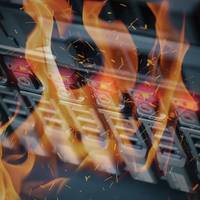
A customer once told me that they had just completed a business continuity analysis and had identified their LMS as their second most mission-critical technology - second only to payroll! Take a moment to consider how much you rely on training technologies to sustain your operations and compliance. How long could you comfortably go without your employees having access to training? How long could you go without access to your compliance records or your employees’ certificates?
MLS Wins Canadian Navy Contract
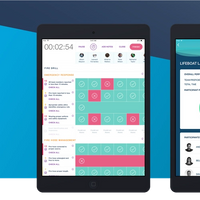
Maritime training and assessment software solutions provider Marine Learning Systems (MLS) said it has been awarded a contract by the Royal Canadian Navy (RCN) to implement a simulation assessment metrics solution.MLS will configure its enterprise application, SkillGrader, to gather, store and report training metrics from student assessments on the RCN’s Navigation and Bridge Simulator. The project…
VIDEO: MarTID 2021 ... A Call to Action for Global Survey of Maritime Training Practices
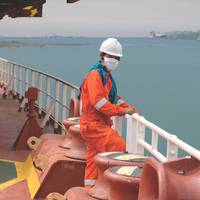
The 2021 Maritime Training Insights Database (MarTID) survey is about to be launched. This is a unique and pivotal time in maritime training. The pandemic has forced us to adapt our training and has accelerated training innovations. This year’s survey is uniquely important for its ability to help us learn from these unprecedented changes to training practices. If we do not survey and document the changes resulting from the pandemic, we lose a unique opportunity to learn.
Training Tips for Ships - Tip #20: Training in the Age of Data

As we greet 2021, it seems fitting to address a “big” topic - a topic that is ultimately going to change everything, including (and perhaps especially) training. The topic is “big data”. The goal of today’s Training Tip for Ships is to get us thinking about big data in training. If we understand it, we can lay the groundwork to take advantage of it.We are in the data age – and this is especially important for training.
Training Tips for Ships - Tip #19: Assess Always
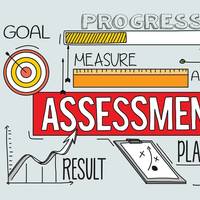
In last month’s Training Tips for Ships, we spoke about the value of creating a culture of learning. Even though many organizations have yet to achieve a healthy learning culture, the concept itself is not controversial. The value is self-evident and universally understood.This month, we go a little further to discuss a culture of assessment. And while some readers may bristle at the idea of near-ubiquitous workplace assessment…
Training Tips for Ships - Tip #18: Creating a Culture of Learning
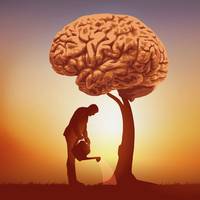
We all think about how to train to produce better outcomes – because better training outcomes mean better performance, safer operations, and employees who are more engaged and more satisfied. But there is a much “bigger picture” goal that only the most thoughtful of maritime organizations work to achieve. That goal is to create a “culture of learning”.It is a little hard to express a concrete definition for a culture of learning…
VIDEO: SkillGrader Takes Officer, Crew Skills Assessment to the Next Level
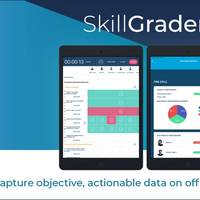
Marine Learning Systems introduces SkillGrader, a mobile application designed to enable vessel operators and training institutions to objectively evaluate officer and crew skills, and to generate instant reports on workforce insights.“SkillGrader completes the learning technologies picture," said Murray Goldberg, founder and CEO of Marine Learning Systems. "For some time now, we have had tools to help teach and assess knowledge – the Learning Management System…
Marine Learning Systems Launches SkillGrader
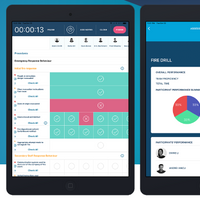
Marine Learning Systems has unveiled SkillGrader, an enterprise solution that enables vessel operators and training institutions to objectively evaluate officer and crew skills, and generate instant reports on workforce insights.SkillGrader is a mobile application that supports simple and objective evaluation of mariner performance, assessing any observable skill, such as routine drills, simulation training, assessment of qualification or on-the-job performance.
Training Tips for Ships Tip #17: Getting Serious About Assessing Skills
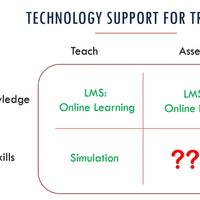
Ours is both a knowledge-based and skill-based industry. We know this. Yet our training does not address both aspects equally. And until it does, we are needlessly sacrificing safety and performance. There is more we can do.Maritime workers require a high degree of both knowledge and skills to perform efficiently and safely. Knowledge enables officers and crew to react intelligently to novel situations and to operate safely in challenging environments.
Training Tips for Ships #16: Using Student Exam Results to Measure OUR Performance: Part 2

In last month’s Training Tips for Ships, we began the discussion of how we can look at our existing training data to measure our success as trainers and training organizations. The data in question are the results from the multiple-choice exams we deliver to our trainees. We deliver these exams all the time, and we gather a tremendous amount of data (answers) over the years. Yet typically we only use that data to determine whether our trainees have gathered the knowledge we are trying to impart.
Marine Learning Systems, SQLearn Announce Partnership
Through a content partnership, SQLearn’s library of interactive e-learning courses is now available on Marine Learning Systems’ training and assessment platform…
MarTID 2020: Maritime Training Budgets Continue to Rise
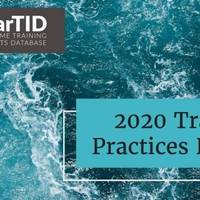
Training budgets for seafarers continue to rise around the world, and seafarers themselves increasingly are paying the price, according to the MarTID 2020 Training Practices Report.Responses (278) to the 2020 MarTID report, the third in the series, rose 60% versus 2019, and again included insights from seafarers (accounting for 53% of the response), vessel operators (24%) and METIs (23%).The survey for MarTID 2020 was concluding just as COVID-19 was starting to spread rapidly…
Training Tips for Ships #15: Using Student Exam Results to Measure OUR Performance

Exams are a staple of training. We know what they are, we know what they are for, and we know how to write and deliver them. And, of course, we all use them to test trainee knowledge. But there is another benefit of exams that the vast majority of maritime trainers are ignoring. And since we give and grade exams all the time, this benefit is already there for the taking!The value I am referring to is that of providing outstanding…
Training Tips for Ships #14: Collect, Analyze Data to Improve Training
As I wrote in last month’s Training Tips for Ships, “If you do not measure it, you cannot manage it. This is especially true with training because the inputs (the training provided) are often far removed in time and apparent direct causality from the key output (performance). Therefore, it is important that we measure everywhere we can”.To address this problem, we discussed the value of student evaluations…




